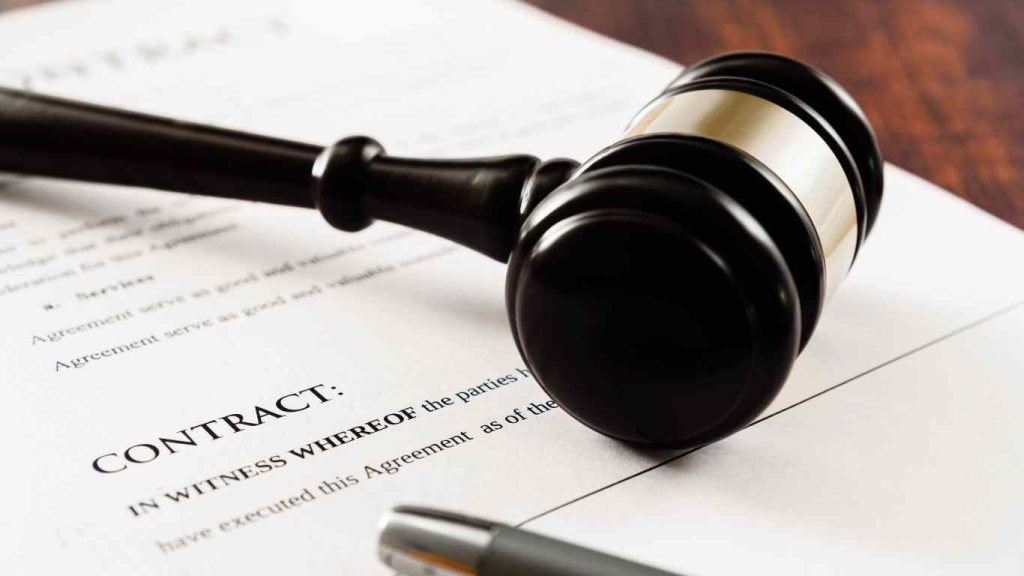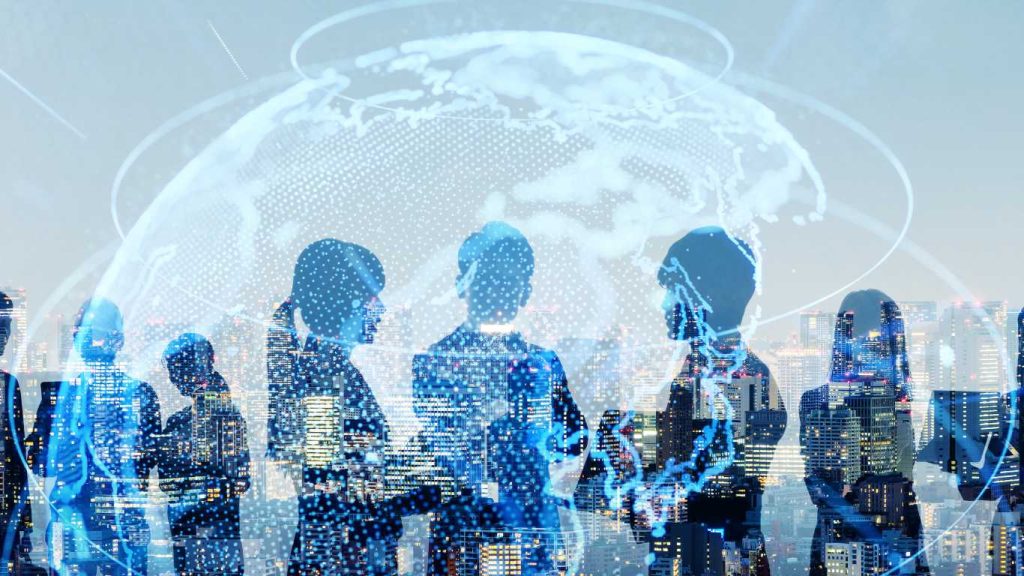Blogs about ChatGPT are flooding the internet these days. With all the buzz about ChatGPT, there is a lot of confusion in the legal industries. Lawyers are curious to know how ChatGPT can be helpful for them. Some also want to know if AI can take away their jobs. OpenAI, like ChatGPT, has significant strides in transforming various industries. Legal industry is one of the sectors that is embracing ChatGPT for their daily routine tasks. But there are few challenges that lawyers and firms are facing with artificial intelligence technology. In this blog, we will explore how lawyers use a powerful tool like ChatGPT in their daily work. We will learn about the impact of ChatGPT on the legal industry, benefits and concerns.
What Is ChatGPT Or Open AI?
OpenAI is an artificial intelligence research laboratory that developed ChatGPT, an advanced artificial intelligence language model. The main motive of open AI was to ensure that artificial intelligence benefits humans in various different ways. ChatGPT is a revolutionary AI tool in the field of natural language processing.
ChatGPT is a language model that is designed in such a way that it generates human-like text on the basis of input it receives. This language model has training on the vast amount of data that include articles, blogs, books, internet sources, etc. This data helps the AI model to develop the deep understanding of different languages, patterns, context, grammar, etc.
The main purpose of ChatGPT is to help users in generating text, provide information on various topics and engage in conversations. This artificial intelligence tool can come in handy in various ways. For instance, it can help users in drafting email, find statics on certain topics, answer queries, write codes, etc.
The Impact Of Artificial Intelligence On Legal Industry
The use of artificial intelligence across different fields is becoming popular. There are various industries in which artificial intelligence and machine learning are becoming a crucial part. In some industries, AI tools and technologies are replacing humans. Usually because these AI tools offer consistency and better work quality at a fraction of the cost. But let’s see what the impact of AI is in the legal industry.
ChatGPT for lawyers is becoming an assisting tool. It helps lawyers in various ways, such as creating content, drafting contracts and documents. Lawyers are making the proper use of these tools in various ways. From educating themselves with ChatGPT to using it for offering quality support and communication.
Even though lawyers can use ChatGPT in various ways, it can not completely replace lawyers. Lawyers can take help with AI tools in simplifying various tedious day-to-day tasks. But they can not be completely dependent on it. This AI tool for lawyers can’t make decisions, or help lawyers with more complex tasks.
AI tools can’t make decisions the way humans can, so it is not going to replace lawyers in the near future. But tools like ChatGPT can help lawyers in making the legal process easier.
How ChatGPT For Law Firms & Lawyers Can Be Useful ?
Artificial intelligence tools like ChatGPT have taken the legal profession by storm. The AI technology helps lawyers streamline their daily and time-consuming tasks. Lawyers can easily conduct tedious research or generate content with the help of this AI tool. ChatGPT not just helps firms in saving time but it can also assist them in various other legal tasks. Lawyers can stay in compliance with rules and guidelines by using this tool. Below are some ways in which ChatGPT for attorneys, lawyers and law firms can be a helpful tool.
1. ChatGPT For Law Firm Legal Research
ChatGPT for law firms is a powerful tool that can help in conducting legal research efficiently. Firms can easily research for any case of matter with the help of this AI tool. The tool can quickly analyze and summarize all the complex legal research. It can help with legal regulations, case law and legal opinions, etc. It eventually saves significant time for the lawyers and lets them focus on more important and crucial tasks and research.
2. ChatGPT For Lawyers Contract Generation
Contracts are a vital part of the legal industry. ChatGPT for lawyers can help them in creating and drafting contracts for clients and cases. This tool can automate the process of contract generation. By inputting all the relevant details and requirements in ChatGPT, it can generate detailed and personalized legal contracts. Lawyers can generate the template or outline of the contract with the help of ChatGPT. This will save their time and efforts. Lawyers can review the contract that ChatGPT will generate and tailor it accordingly.

3. ChatGPT For Lawyers Document Drafting
ChatGPT for attorneys and lawyers can also help them in drafting all the necessary legal documents. It can help lawyers in generating the first legal draft according to the information that they provide. ChatGPT can also suggest to users the kind of language and format that they can use when drafting documents. All this makes the work of lawyers efficient and seamless. This AI tool will ensure the overall consistency and accuracy of the document. Lawyers can review the draft that they get and customize it according to the requirements.
4. ChatGPT For Law Firm Client Communication and Support
ChatGPT for law firms can assist them in offering support and help with client communication, too. Law firms can integrate ChatGPT with their case management software to create effective communication flow. It can help law firms in addressing routine inquiries, provide basic legal information and guide clients through communication. This helps lawyers to manage their communication effectively and saves a lot of time.

5. ChatGPT For Lawyers Content Writing
ChatGPT for attorneys and lawyers helps them with content writing. ChatGPT can help lawyers in the research and discovery for the process of content creation. ChatGPT for lawyers allows them to put together accurate legal content within no time. It can include content for any purpose, such as legal marketing content, contract or document content. ChatGPT has access to large data that allows it to find accurate information and create legal content. The information that ChatGPT can provide is usually grammatically correct and accurate.
6. ChatGPT For Legal Education and Training
ChatGPT for lawyers and firms can also be useful in terms of legal education and training. ChatGPT is a valuable resource for lawyers as they can utilize it to gain knowledge regarding the legal industry. This AI tool can provide vast information to clients that new lawyers can use for educational purposes. It also helps new lawyers in writing, legal research and analysis. Law students can also use ChatGPT law exam preparation and to stay up to date with all the legal trends.
ChatGPT for Lawyers: Challenges and Concerns
Despite all the positive impact that ChatGPT and other AI tools have on the legal industry, still it poses challenges. Firstly, there is no way technology can understand and keep up with complex legal systems. Although it is not difficult for ChatGPT to ease client communication and answer queries. But it is not possible for ChatGPT to understand complex legal topics. It can’t interpret dynamic cases the way humans can. Law firms who get dependent on ChatGPT for making complex decisions put themselves at a risk.
Although ChatGPT can handle the basic compliance and ethics, it isn’t capable of subtle guidance. Only lawyers can take into consideration all the important ethical compliance while making any decisions. The last thing any law firm will do is jeopardize their reputation by using ChatGPT. As well as other AI tools to make legal decisions.
The Bottom Line
ChatGPT has the potential to be a game changer for the legal profession. It empowers lawyers with vast data and information. Help them conduct legal research and effectively manage communication. However, it also has some concerns and limitations. In this blog, we have mentioned a few ways in which ChatGPT for lawyers is an effective tool. ChatGPT is a valuable tool that assists lawyers but they should not be dependent on it. As AI technology is evolving, the legal industry should embrace and adapt it, but should not get dependent on it.

